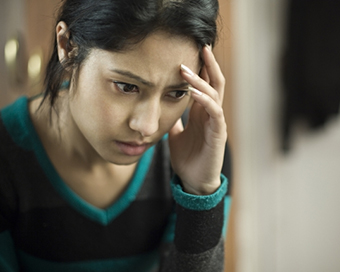Gallery
 PM Modi visit USA
PM Modi visit USA Only the mirror in my washroom and phone gallery see the crazy me : Sara Khan
Only the mirror in my washroom and phone gallery see the crazy me : Sara Khan Karnataka rain fury: Photos of flooded streets, uprooted trees
Karnataka rain fury: Photos of flooded streets, uprooted trees Cannes 2022: Deepika Padukone stuns at the French Riviera in Sabyasachi outfit
Cannes 2022: Deepika Padukone stuns at the French Riviera in Sabyasachi outfit Ranbir Kapoor And Alia Bhatt's Wedding Pics - Sealed With A Kiss
Ranbir Kapoor And Alia Bhatt's Wedding Pics - Sealed With A Kiss Oscars 2022: Every Academy Award Winner
Oscars 2022: Every Academy Award Winner Shane Warne (1969-2022): Australian cricket legend's life in pictures
Shane Warne (1969-2022): Australian cricket legend's life in pictures Photos: What Russia's invasion of Ukraine looks like on the ground
Photos: What Russia's invasion of Ukraine looks like on the ground Lata Mangeshkar (1929-2022): A pictorial tribute to the 'Nightingale of India'
Lata Mangeshkar (1929-2022): A pictorial tribute to the 'Nightingale of India' PM Modi unveils 216-feet tall Statue of Equality in Hyderabad (PHOTOS)
PM Modi unveils 216-feet tall Statue of Equality in Hyderabad (PHOTOS)India Open Competition in Shotgun, organised by the National Rifle Association of India (N
- Hockey India names Amir Ali-led 20-man team for Junior Asia Cup
- Harmanpreet Singh named FIH Player of the Year, PR Sreejesh gets best goalkeeper award
- World Boxing medallist Gaurav Bidhuri to flag off 'Delhi Against Drugs' movement on Nov 17
- U23 World Wrestling Championship: Chirag Chikkara wins gold as India end campaign with nine medals
- FIFA president Infantino confirms at least 9 African teams for the 2026 World Cup
One out of seven in 15-24 age group feels depressed in India: UNICEF Last Updated : 05 Oct 2021 03:05:27 PM IST 
The ongoing Covid-19 pandemic has created serious concerns about the mental health of children and their families, says UNICEF report on mental health 'The States of the World's Children 2021'. The report says that around 14 per cent of 15 to 24-year-olds in India, or 1 in 7, have often feeling depressed.
Union Health Minister Mansukh Mandaviya on Tuesday released the report here.The report has illustrated in stark terms how events in the wider world can affect the world inside our heads.In the UNICEF survey across 21 countries, only 41 per cent of young people in India were willing to seek support for mental health problems, compared to an average of 83 per cent for 21 countries.Releasing the report, minister Mandaviya said, "Mental health has widely been discussed in our Sanatan culture and spirituality. The mutual development of mind and body has been explained in our texts. A healthy mind resides in a healthy body. We are very happy that today UNICEF has released a global report on the mental health of children".The Union Minister added further that as the trend of nuclear family instead of joint family has increased in our society, mental health problems have become frequent in children. "Today parents are not able to give enough time to their child, so we need to talk about mental health," he said, and added, "We have been told that around 14 per cent of children worldwide have a mental health problem. It has to be taken seriously."Mandaviya said, "To build a better and developed society, it is necessary to keep monitoring the mental health of children from time to time. For this, arrangements will also have to be made for better mental health of teachers in schools. Because, children trust their teachers the most".Sharing his experience, the minister said that he as the health minister faced mental pressure during the second wave.He continued saying, "People's problems shook me. After that I started doing yoga and cycling in the morning. It is my request to all that you also examine the problems of your mind and work for its betterment. Spend enough time at home with your children. Talk to them in a friendly atmosphere."Children in India seem reticent to seek support for mental stress, according to a survey conducted by UNICEF and Gallup in early 2021 with 20,000 children and adults in 21 countries. Only 41 per cent of young people between 15-24 years of age in India said that it is good to get support for mental health problems, compared to an average of 83 per cent for 21 countries. As per the report, India was the only one of 21 countries where only a minority of young people felt that people experiencing mental health issues should reach out to others. In every other country, a majority of young people (ranging from 56 to 95 per cent) felt that reaching out was the best way to deal with mental health issues.The survey findings, which are previewed in The State of the World's Children 2021, also found that around 14 per cent of 15 to 24-year-olds in India, or 1 in 7, reported often feeling depressed or having little interest in doing things. The proportion ranged from almost one in three in Cameroon, one in seven in India and Bangladesh, to as low as one in ten in Ethiopia and Japan. Across 21 countries, the median was one in five young people.The report notes that as the Covid-19 Pandemic heads into its third year, the impact on children and young people's mental health continues to weigh heavily. Through the pandemic, children have had limited access to support from social services due to lockdown measures. The disruption to routines, education, recreation, as well as concern for family income and health, is leaving many young people feeling afraid, angry, and concerned for their future.According to data from UNESCO, over 286 million children up to grade 6 were out of school in India between 2020-2021. UNICEF's rapid assessment in 2021 found that only 60 per cent could access digital classrooms. Many would not be able to continue their education.The report notes that even before the Covid-19 crisis, children and young people carried the burden of mental health conditions without significant investment in addressing them.According to the latest available estimates, more than 1 in 7 adolescents aged 10-19 is estimated to live with a diagnosed mental disorder globally. Of these, South Asia had the highest numbers of adolescents with mental disorders, according to the report.In India, children with mental health disorders are mostly undiagnosed and hesitant in seeking help or treatment. According to the Indian Journal of Psychiatry in 2019, even before the pandemic, at least 50 million children in India were affected with mental health issues; 80 - 90 per cent have not sought support.Meanwhile, wide gaps persist between mental health needs and mental health funding. India has spent only 0.05 per cent of its health budget annually on mental health, according to Indian Journal of Psychiatry 2017.IANS New Delhi For Latest Updates Please-
Join us on
Follow us on








172.31.16.186







